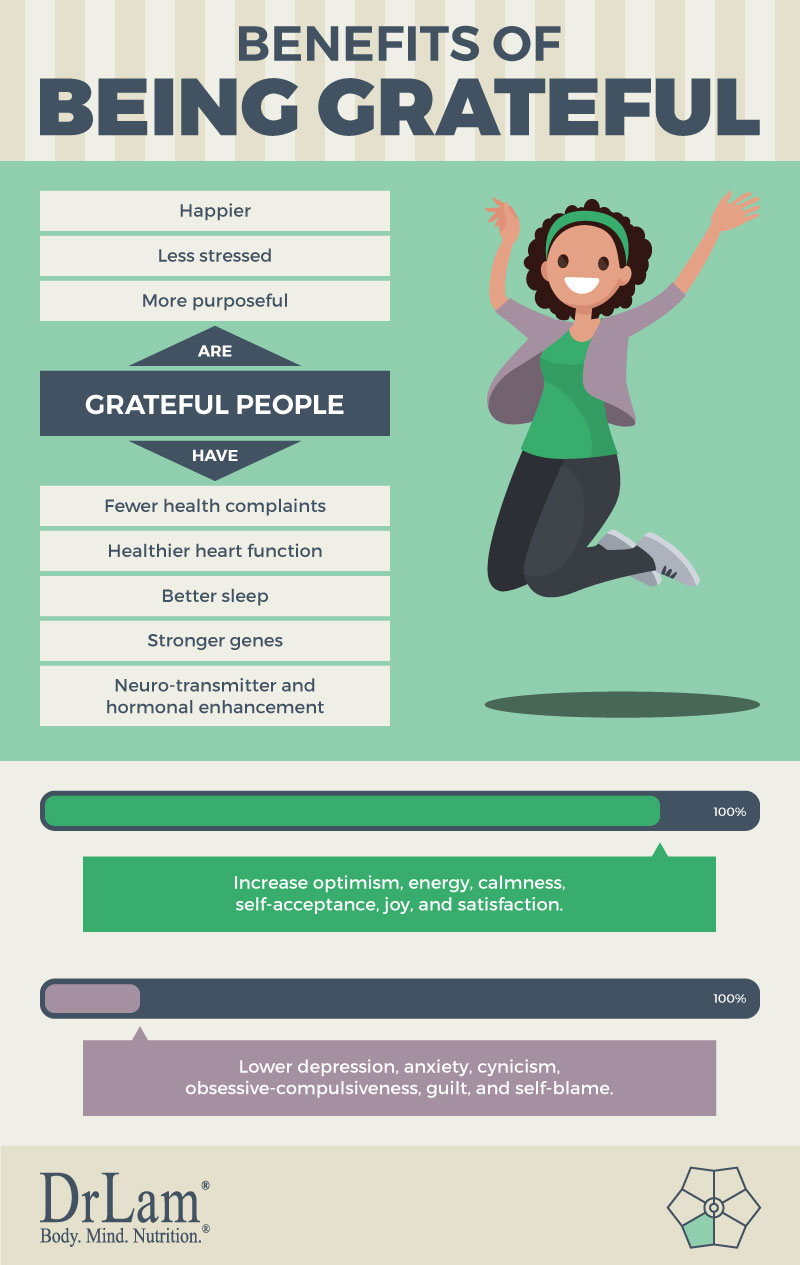 When fatigue knocks on your doorstep because of excessive physical or emotional stress, don't overlook being grateful. Adrenal Fatigue Syndrome (AFS) is seldom on the list of possible causes for being grateful. In fact, fatigue is simply brushed off as insignificant. Being tired can even be considered normal living in the high stress of the modern world; it is nothing that more rest cannot fix. Our society has taught us that we are masters of the universe and our bodies. We are infallible and can conquer almost anything. In the worst-case scenario, the variety of energy drinks and sugary foods available will provide enough energy to restore your vitality.
When fatigue knocks on your doorstep because of excessive physical or emotional stress, don't overlook being grateful. Adrenal Fatigue Syndrome (AFS) is seldom on the list of possible causes for being grateful. In fact, fatigue is simply brushed off as insignificant. Being tired can even be considered normal living in the high stress of the modern world; it is nothing that more rest cannot fix. Our society has taught us that we are masters of the universe and our bodies. We are infallible and can conquer almost anything. In the worst-case scenario, the variety of energy drinks and sugary foods available will provide enough energy to restore your vitality.
Over time, as fatigue becomes more prevalent and severe, the patient’s job performance may be affected. Free time turns into napping time. Social activities are curtailed due to lack of energy, more rest helps but not enough, and energy drinks make matters worse. A sense of frustration and disbelief emerges, usually followed by vigilant research for medical solutions. Multiple visits to the primary care physician and normal laboratory test results lead to a sense of assurance that nothing major is wrong, but that does not help the reality of day to day living —waking up not feeling refreshed, dragging through the day, and being totally exhausted at the end of the day. All of these symptoms make being grateful for a very difficult task. Slowly but surely a cognitive dissonance appears, as the patient is unable to resolve the ever-increasing fatigue that is obviously a sign of a body gone astray while at the same time being told by trusted physicians that all is well.
Refusing to give up, many visits to specialists and sub-specialists are paid for. Frustration and disappointment with the medical establishment increases as the condition only gets worse, as waxing and waning cycles of energy begin to take hold of the once productive life. Thousands of dollars are spent on numerous tests that continue to be normal. Over time, invariably, prescription medications such as thyroid replacements, sleeping pills, and anti-depressants are dispensed to patch symptoms of low energy, insomnia, and depression. As the condition worsens, the sufferer becomes couch bound. In extreme cases, the patient is bedridden for an extended time and unable to leave home. An increasing sense of loss, fear, and vulnerability develops. Because of the conventional medical community’s continued failure to effective improvement due to ignorance of this condition, sufferers are terrified of losing their vitality and some are devastated emotionally.
 Unknowingly, the body may already be well entrenched in a state of neuroendocrine dysfunction called Adrenal Fatigue Syndrome. In this condition, the adrenal glands are operating sub-optimally. Control of the adrenal glands resides in the brain. Some of the key hormonal and neuronal axes, such as the Hypothalamic-Pituitary-Adrenal (HPA) have been well studied. Dysregulation of the HPA axis is indeed a component of the AFS continuum. Seldom mentioned or studied is how the psychological components of the mind affect the HPA Axis, adrenal glands and ultimately influences AFS. Let’s take a closer look.
Unknowingly, the body may already be well entrenched in a state of neuroendocrine dysfunction called Adrenal Fatigue Syndrome. In this condition, the adrenal glands are operating sub-optimally. Control of the adrenal glands resides in the brain. Some of the key hormonal and neuronal axes, such as the Hypothalamic-Pituitary-Adrenal (HPA) have been well studied. Dysregulation of the HPA axis is indeed a component of the AFS continuum. Seldom mentioned or studied is how the psychological components of the mind affect the HPA Axis, adrenal glands and ultimately influences AFS. Let’s take a closer look.
For decades, the conventional medical approach to the healing process has been one based on reduction and compartmentalization of the body’s systems into individual organs for easy understanding and dissection. There is a specialist for every single organ in the body. This concept is so popular in modern medicine that approaching the body as a whole unit, the way we are built, can even be considered unscientific or alternative.
For centuries, the brain as an organ was considered physiologically separated from the rest of the body except for the physical neuronal connections. Mental functions, though part of the brain, were thought to be an independent process unrelated to the rest of the body. How we think and how we function were thought to be unrelated to each other. This hypothesis has been proven false. The fact is that the entire body is a coherent and tightly connected closed system where each organ system is intimately woven into all other systems, like a spider web. The brain is no exception. Some portions of the brain are connected by physical blood vessels and neurons to the rest of the body. Other connections are the hormonal highways and axes, with both positive and negative feedback loops in place mediated by chemical messengers. These are less obvious. Still other connections are known to exist but have yet to be discovered, such as the meridian system advocated by Tradition Chinese Medicine and pathways mediated by electrical or gaseous pathways.
Just as we have yet to find various connections because our current technology is not sensitive enough does not mean that such connections do not exist. Progress is being made. Thanks to advanced scanning technology, the links between mental outlook, brain function, and the rest of the body are under intense investigation in recent decades. We are now able to map out the physiological results in the body from psychological changes in mental function that start in the brain.  We are not only what we eat. We are what we think and how our brain develops. For example, neuronal growth in utero can be visualized with precise details, and it was found that mishaps at six months in utero could lead to schizophrenic conditions later in life. Improper pruning of neurons and delays in pre-frontal cortex development in puberty provides major insights into the maturing brain and explains why adolescents and young adults often behave impulsively and irresponsibly.
We are not only what we eat. We are what we think and how our brain develops. For example, neuronal growth in utero can be visualized with precise details, and it was found that mishaps at six months in utero could lead to schizophrenic conditions later in life. Improper pruning of neurons and delays in pre-frontal cortex development in puberty provides major insights into the maturing brain and explains why adolescents and young adults often behave impulsively and irresponsibly.
It is clear that healthy mental function and brain development are key components of healthy living. AFS, in its advanced stages, represents a classic case of how the brain’s psychology can affect physical outcome.
Advanced Adrenal Fatigue Syndrome is, at its root, a complex condition involving psycho-neuro-endocrinological pathways, starting at the brain and working its way through the rest of the body. The typical symptom in the early stages is fatigue (stage 1 and 2). As AFS advances, other more complex symptoms including reactive hypoglycemia, heart palpation, insomnia, dizziness, anxiety, depression, and gastric disturbance join the parade. The syndrome becomes very convoluted even to the most astute conventional physician unless they are on the lookout for AFS.
Even when finally acknowledged by health professionals (usually outside the conventional medical world), AFS is seen as a purely physical phenomenon without a psychological link. This may be true in the early stages of AFS. Those who are in advanced stages (stages 3 and 4), particularly those who have had major crashes and are couch-bound and bedridden, will tell you a very different story. Their bodies often react quickly and they are held hostage to even the slightest changes in mental outlook and mood swings. A slight verbal argument may trigger an adrenal crash. Even the very thought of failure to heal can lead to heart palpitations, insomnia, anxiety, and dizziness.
A common denominator of those who recover from stages 3 and 4 of Adrenal Fatigue Syndrome is that they often have a positive attitude towards life, no matter how dark the moment may seem and are great at being grateful. It is clear that positive thoughts can calm the body, increase energy, and promote a sense of well-being. Clearly, there is an important and undeniable mental component to this condition in its advanced stages, and we can use this to our advantage.
The recognition that positive emotions can affect our physical well-being is not new. Decades of research have repeatedly shown that a positive mental outlook leads to a healthier life physically in a variety of ways.

 Mindset matters. For a long time, the scientific community has investigated and knows the value of feeling good and practicing gratitude. Positive psychology, a part of Cognitive-Behavioral Psychology, is a field of psychology that has particular relevance to advanced AFS. It focuses on understanding thankfulness, conducting research on being grateful, and utilizing therapeutic interventions aimed at increasing gratitude and optimism in life.
Mindset matters. For a long time, the scientific community has investigated and knows the value of feeling good and practicing gratitude. Positive psychology, a part of Cognitive-Behavioral Psychology, is a field of psychology that has particular relevance to advanced AFS. It focuses on understanding thankfulness, conducting research on being grateful, and utilizing therapeutic interventions aimed at increasing gratitude and optimism in life.
Numerous research studies have been carried out to test the effects of a thankful attitude and being grateful. The science is clear. There are tremendous physical benefits of being grateful as a person, though we do not yet know each and every mechanism of action.
Gratitude is an important tool we can use in all stages of AFS recovery. However, it is seldom discussed because of the negative social stigma connoted once we incorporate mental health as one of the many factors contributing to AFS. Most prefer to see AFS as a purely physical condition with no mental component. This notion must be dispelled when looking at advanced stages of AFS. Most AFS sufferers are high achievers with Type A obsessive-compulsive personality traits. They think differently than others. They are goal driven, disciplined, and highly focused. This type of mental makeup does have physical ramifications. AFS is one example of such a drive gone astray, when the body is unable to handle the stress that comes with this type of mental drive. While the mental component is not immediately evident in early stages of AFS, those in advanced stages can no longer deny its importance. Failure to deal with this will only deter the recovery process.
This denial of the importance of how a mental outlook can affect a disease state deters our advances towards speedy recovery in any disease state, whether it is cancer, heart disease, or organ transplant. AFS is no exception. It is important for us to embrace our mental state as an important component of advanced AFS at the root level. A proper mental outlook and gratitude are important tools in the AFS recovery toolbox. The more advanced the AFS, the more valuable these tools are.
The word gratitude is derived from the Latin word gratia, which means grace, graciousness, or gratefulness. Just like beauty is in the eye of the beholder, gratitude is many things to many people. Gratitude or being grateful is a mental attitude of appreciation for something good and beneficial one has received or will receive from another person or from a higher power. Gratefulness is completed when it is expressed in words and or gestures of thankfulness, smiles and hugs, or other gifts.
Compared to other people grateful people are:
Being grateful lowers depression, anxiety, cynicism, obsessive-compulsiveness, guilt, and self-blame. It increases optimism, energy, calmness, self-acceptance, joy, and satisfaction. Positive emotions associated with gratitude neutralize negative emotions’ debilitating effects, and the results can be felt almost immediately.
 A US study published in 1998 involving 45 healthy adults found that those study participants who were taught to cultivate appreciation and other positive emotions experienced a 23 percent reduction in cortisol—the key stress hormone—than those who did not. The 1998 study results suggest that techniques designed to eliminate negative thought loops can have important positive effects on stress, emotions and key physiological systems. Those who are in early stages of AFS where cortisol output is high will find this particularly helpful in lowering cortisol levels. They have better coping mechanisms to deal with personal difficulties and life transitions, whether they are marital issues, family disharmony, changes in career, physical relocation, low social interaction, or illness. They are more prone to seek help earlier rather than to deny their problems.
A US study published in 1998 involving 45 healthy adults found that those study participants who were taught to cultivate appreciation and other positive emotions experienced a 23 percent reduction in cortisol—the key stress hormone—than those who did not. The 1998 study results suggest that techniques designed to eliminate negative thought loops can have important positive effects on stress, emotions and key physiological systems. Those who are in early stages of AFS where cortisol output is high will find this particularly helpful in lowering cortisol levels. They have better coping mechanisms to deal with personal difficulties and life transitions, whether they are marital issues, family disharmony, changes in career, physical relocation, low social interaction, or illness. They are more prone to seek help earlier rather than to deny their problems.
Grateful people are more logically focused on their priorities and they are more mature and balanced in their personal growth.
People who are more thankful have less physical illnesses. Their bodies have an enhanced response to external insults and resistance to viral infections.
Increased coherence in heart rate variability patterns was observed in studies where participants practiced the art of gratefulness. Gratitude and appreciation sets your heart towards a smooth-waved rhythm, whereas negative emotions like anger and frustration send it into an erratic, disordered rhythm. The more stable the heart rhythm, the healthier the entire cardiovascular system.
Higher levels of gratitude were associated with better sleep with lower anxiety and depression.
Expressing gratitude caused the double helix coil of DNA to become more functional and more easily positioned itself for gene transcription. Premature aging is deterred.
Studies have shown measurable effects on mood neurotransmitters such as serotonin and norepinephrine, reproductive hormones such as testosterone, social bonding hormones such as oxytocin, and cognitive and pleasure related neurotransmitters such as dopamine.
 Adrenal Fatigue Syndrome (AFS) is a condition few look forward to. For those in advanced stages, the sense of disappointment and discouragement is often an uncontrollable part of the recovery journey even in the best of professional hands. Those who successfully recover from AFS usually are educated about the condition at the psycho-neuro-endocrinological level. They are very patient, and have a positive mindset especially during the many setbacks along the way. These patient's optimism and gratitude benefits them greatly in their recovery from Adrenal Fatigue.
Adrenal Fatigue Syndrome (AFS) is a condition few look forward to. For those in advanced stages, the sense of disappointment and discouragement is often an uncontrollable part of the recovery journey even in the best of professional hands. Those who successfully recover from AFS usually are educated about the condition at the psycho-neuro-endocrinological level. They are very patient, and have a positive mindset especially during the many setbacks along the way. These patient's optimism and gratitude benefits them greatly in their recovery from Adrenal Fatigue.
Gratefulness will only hasten the recovery process. Negative thoughts trigger negative energy forces that retard the healing process. The more you focus on being grateful and thinking positively, the faster you recover making it one of the best gratitude benefits. The direct and positive link between having a positive mental attitude and reducing stress on the stress hormone and autonomic nervous system’s integrity is well established. Indeed, the key components of the body can be controlled from our mind when it comes to advanced Adrenal Fatigue Syndrome.
Even if you are struggling, you’re likely to be grateful for something. You want to be thinking of matters that make you feel good. Expressing positivity to others and yourself and living with a sense of gratitude benefits us with a good feeling that cannot be generated by medicine.
When you feel grateful, your mental clarity improves. This sense of gratitude benefits you because you become more keenly aware of the big picture of life and what really matters. Understand that it is not foolish to focus on gratitude as a simple and secure way to a more enchanted life. The world becomes a friendlier place to live. Everything around you, from flowers to people that bother you, begin to look different and make you smile. You are less controlled and held hostage by society’s values, but more by your desire to live your life fully according to what you have on hand. You start to live in the now, abandoning the chains of parental expectations, peer pressures, career requirements, guilt feelings, and unrealistic financial expectations. Our body becomes flooded with a sea of positive energy that optimizes health. Life becomes juicier, allowing us to wake up every morning excited to experience the new day, even when energy is low.
With a positive attitude, you will see advanced AFS is not a curse at all. Yes, it may rob us of vitality, but that is only temporary. It is the body’s way of reminding us to slow down and be grateful for what we have, and challenges us to live our lives surrendering to our body’s wishes: a return to simplicity and simple abundance. For too long, we pushed our bodies too much. We focused on what we wanted, ignoring the body’s signals and signs. AFS returns us to a stage of harmony with our body. AFS is that window of opportunity for us to regain insight into the body that we never would have taken the time to do so otherwise.
This sense of gratitude benefits not only your recovery but ultimately provides a blueprint to a happier life. Gratitude, therefore, unlocks the fullness and is the elixir of life. It is a mental tool readily available and best of all, free. It turns denial of AFS into acceptance and embraces the fact that AFS will make us better human beings. It transforms the frustration and disappointment of what is apparent chaos to the realization that the body is in charge in an orderly fashion in its infinite wisdom. It erases confusion and in its place, a sense of clarity emerges. It has the miraculous power of consistently turning a mundane meal into a welcome feast, a house filled with disharmony into a loving home. Gratitude benefits can help transform the body and support its self-healing process. Gratitude makes sense of our past, no matter how much of a burden it is, relieves our guilt, reduces our shame, brings joy and peace for today, and creates a healthy vision for tomorrow, allowing the body to reach its maximum self-healing potential.
Gratitude benefits are a critical and important component to the law of attraction. When you are grateful for what you have, you create a powerful energy field that returns to you an abundance of positive energy and love. One of gratitude benefits is that it is a gift that once mastered, will never stop giving. The absolute quickest way to recover from advanced AFS, from a mental perspective, is to attract everything you desire in your life. This is best accomplished by being grateful for everything you already have.
 Practicing gratitude, despite its many positive attributes, is easier said than done. Most AFS sufferers tend to have high achieving Type A personalities—marked by hostility, impatience, efficiency, pro-activeness, competitiveness and dominance. They are results-driven, and seldom have time to stop and smell the roses. Demands on themselves and from family, friends, and society often create a self-imposed burden of high expectations and performance standards. Research has shown they are more prone to cardiovascular disease and death from heart attack. Society on the whole encourages such aggressive warrior like behavior. In recent decades, researchers have discovered the key expressions of Type A traits that are most problematic. They are negative traits like depression, hostility, inability to forgive, anxiety, and anger. These traits can be separately grouped into a personality type the field of psychology call Type D (for distressed) personality to be more specific. Both of these personality types are most at risk for AFS.
Practicing gratitude, despite its many positive attributes, is easier said than done. Most AFS sufferers tend to have high achieving Type A personalities—marked by hostility, impatience, efficiency, pro-activeness, competitiveness and dominance. They are results-driven, and seldom have time to stop and smell the roses. Demands on themselves and from family, friends, and society often create a self-imposed burden of high expectations and performance standards. Research has shown they are more prone to cardiovascular disease and death from heart attack. Society on the whole encourages such aggressive warrior like behavior. In recent decades, researchers have discovered the key expressions of Type A traits that are most problematic. They are negative traits like depression, hostility, inability to forgive, anxiety, and anger. These traits can be separately grouped into a personality type the field of psychology call Type D (for distressed) personality to be more specific. Both of these personality types are most at risk for AFS.
On the flip side, relaxed Type B’s personalities tend to be less at risk for AFS from a stress perspective, though not immune. They are relaxed, easy-going, taking problems in stride, and socially extroverted. They enjoy a better quality of life and suffer less serious health issues. One study published in 2010 that followed 500 men for fifteen years found that the optimists in the study had a 50 percent lower risk of heart-related death than those who had a more pessimistic view of life. They may not be able to get a lot done in life compared to those who are Type A in terms of chores, but they also tend to live longer, and oftentimes, are more successful socially.
Gratitude benefits are not easy to accomplish for those that are Type A or D. Those that are already more calm, content, optimistic, and have a positive social personality tend to have an easier time. Those who are angry, anxious, and depressed will find gratitude easier said than done. However, all is not lost. Gratitude can be learned if you work hard. Those afflicted with AFS, especially in the advanced stages, don’t really have much of a choice if they are determined to recover. The same obsessive-compulsive personality traits that may be triggering AFS can now be used constructively. Along with proper nutritional support, emotional cleanliness, adrenal breathing exercises, inner strength rebuilding, and re-balancing of the autonomic nervous system, gratitude training is a tool to help facilitate the recovery process. The more they are carried out in a unified and comprehensive program, the faster the recovery.
Gratitude benefits are clear and it is something that you can learn, practice and develop. It is a skill, like success, happiness, and playing a musical instrument. This new skill, once mastered, will give you a deep sense of calm and contentment, well-being, optimism, and happiness. Like a well-raised child, it is a gift that never stops giving. So, how can you bring more gratitude into your life? Below are a few gratitude exercises we recommend:
Start your morning thinking about the things that you are thankful for. Do this as soon as you wake up in the morning before you even eat breakfast.
 When we live in a materially rich life, very often we are blinded to the good things and we tend to stop feeling appreciation for them. Negative emotions and a sense of despair can creep in, especially when you are in an adrenal crash. Even worse we begin to feel restless and start to believe that the grass is always greener on the other side. You should therefore try to see your life through the eyes of another. This will allow you to appreciate more deeply the material advantages that you have and begin to feel grateful for those things in your life that you have taken for granted. Even you who may be bed-bound and unable to do activities you once did, can realize that things could be much worse. Think of those who have really serious medical problems that may be life threatening, and remind yourself that AFS may be a blessing in disguise at the end of the day because you can recover and lead a new life of simple abundance. When we see things through the eyes of others we often develop empathy, understanding, compassion and tolerance.
When we live in a materially rich life, very often we are blinded to the good things and we tend to stop feeling appreciation for them. Negative emotions and a sense of despair can creep in, especially when you are in an adrenal crash. Even worse we begin to feel restless and start to believe that the grass is always greener on the other side. You should therefore try to see your life through the eyes of another. This will allow you to appreciate more deeply the material advantages that you have and begin to feel grateful for those things in your life that you have taken for granted. Even you who may be bed-bound and unable to do activities you once did, can realize that things could be much worse. Think of those who have really serious medical problems that may be life threatening, and remind yourself that AFS may be a blessing in disguise at the end of the day because you can recover and lead a new life of simple abundance. When we see things through the eyes of others we often develop empathy, understanding, compassion and tolerance.
Make it a habit before going to bed each night to write down in a journal the five thing about the day for which you are grateful. Your entry for each of the five things can be as short as one sentence. Try to write down how those five things have helped make you feel more positive about your life. This is very easy to do yet it will bring you a positive outlook on life and peace of mind. Studies have shown that people who wrote down five things that they were grateful for that past week reported fewer physical problems and spent more time working out but most importantly, they felt fully 25 percent happier than those who wrote down five daily hassles from the previous week. Of course, studies such as this one cannot prove cause and effect, but most of the studies published on the topic of gratitude support an association between gratitude and an individual's well-being.
Create a list of one hundred things that you are grateful for in your life. On a sheet of paper, draw four vertical columns and under each column write down the following headings: assets (things you own), people (your relationships), qualities (personal qualities and character traits), and experiences (places you’ve visited and things you’ve done) and place the one hundred things in the appropriate column.
 Try sending a gratitude email or a thank you note to a person in your life who you have never properly thanked and tell that person how your life has been positively influenced by them. Everyone likes to be thanked, and pretty soon, like a boomerang, you will start receiving thank you emails from those people you have sent your emails to and your relationship with them will also greatly improve.
Try sending a gratitude email or a thank you note to a person in your life who you have never properly thanked and tell that person how your life has been positively influenced by them. Everyone likes to be thanked, and pretty soon, like a boomerang, you will start receiving thank you emails from those people you have sent your emails to and your relationship with them will also greatly improve.
Get yourself a small rock that you can carry around. Attach it to your key chain. Every time you look at it or feel it, remind yourself how much you have to be grateful for day and night. They can include statements like:
Think about the people who work hard to bring food to your breakfast table, such as the farmers who grow the vegetables, and especially those family members who prepare your meal if you are not making it yourself. Many with Adrenal Fatigue Syndrome have limited dietary choices. Be grateful that this is only temporary and as you heal, those restrictions may be lifted. Lastly, you can say a simple prayer for the nutritious food that you are about to receive.
Talk to a friend or a family member and share what you are grateful for with each other. This will create a positive emotional sharing experience and make you and those around you feel much better about themselves. Social support encourages healthy behaviors, because we often lack the discipline to do things on our own. If you spend more time with people who are more grateful, you will find that you will begin to feel gratitude much more easily. Hanging out can be a draining experience. Ask your friends over for a short afternoon tea or a short walk. Keep it short, but focus on quality time.
 Think of one ungrateful thought per day, and change it into a grateful one in your mind. For example, if you are scolded by your boss at work, you can simply replace that thought with a grateful thought such as how very lucky you are to have a boss who cares about you and is willing to take the time from his or her busy schedule to point out your mistake so that you can do a better job at work the next day. If you feel you are not regaining your energy as quickly as you should, change it to the grateful idea that a slow healing process is fundamentally stronger and more stable than a quick one, and that is perfectly okay. Besides, there is really no rush.
Think of one ungrateful thought per day, and change it into a grateful one in your mind. For example, if you are scolded by your boss at work, you can simply replace that thought with a grateful thought such as how very lucky you are to have a boss who cares about you and is willing to take the time from his or her busy schedule to point out your mistake so that you can do a better job at work the next day. If you feel you are not regaining your energy as quickly as you should, change it to the grateful idea that a slow healing process is fundamentally stronger and more stable than a quick one, and that is perfectly okay. Besides, there is really no rush.
More than most people, AFS sufferers are held hostage to the ups and downs of the body’s energy reserves and cycles because of their low energy reserve. When the reserve is too low, the body heads towards physical incapacitation. It is forced into inactivity in order for the body to have time to refill the energy reserve. When energy is high, most people tend to overdo things, draining their energy reserve quickly. Being cognizant of this cycle and proper balancing is key to a successful AFS recovery. If not properly addressed, the never ending roller coaster cycle ride eventually can worsen the AFS state, resulting in a higher sensitivity to stress and frequent adrenal crashes. Longer and lagging recovery times become the norm, and failures of timely rebounds become prevalent as one ages. It is common to be normal one day and wake up exhausted and bedridden for the next few days in severe cases.
Negative mental outlooks drain us of precious energy already low in supply for those in advanced stages of AFS. Gratitude is an invaluable mental tool that has mind body effectiveness. Practicing gratitude along with our specially developed adrenal breathing exercises, adrenal restorative exercises and adrenal yoga exercises, can help bridge and stabilize difficult periods. Its effectiveness is especially prominent when the body does not seem to cooperate. At times of anxiety, depression, insomnia, frustration, disappointment, despair, a sense of impending doom, and hopelessness, use gratitude to help the body shed the negative mental cycle and bring peace and tranquility back, which will help reset the energy cycle. Many have reported an almost instantaneous positive benefit once you master this process.
Practicing gratitude benefits also include help in preventing adrenal crashes as it brings mindfulness to our decision making, giving our prioritizing of daily events a more logical base instead of succumbing to our fleeting feelings that can be devoid of logic.
Practicing gratitude therefore accelerates the overall AFS recovery, regardless of the stage. The more you practice, the faster the law of attraction bought on by gratitude will kick in. Other attributes to healthy living will be drawn into the body as positive energy for self-healing.
Some of us are born with an innate sense of gratitude and optimism in place. Those who have faith in a higher power find this process easier. Those who are cynical in nature, having had bad experiences with people or society, may find it more challenging. Gratitude is a skill, much like learning a musical instrument. The more you practice, the better you become. Along with adrenal breathing exercises, these are two freely available critical tools that can be great accelerators for the recovery process with no downside.
A simple Adrenal Fatigue Syndrome gratitude prayer you may find helpful:
“God, even as my heart cries of despair and fatigue,
You fill me with your grace and blessing.
Thank you for returning me to a life of simple abundance.Thank you for healing me.”
As humans, we all have weaknesses. Defense mechanisms can be healthy to a certain degree, but can also be overwhelming that they become negative.
There are many supplements that can be beneficial to you. Vitamin C and fish oil are great for healing and would be a good place to start. Just don't over do it.
"I am grateful for this article!"
"I am grateful for this article! Thank you for affirming the benefits of gratitude. I will continue to practice gratitude!"